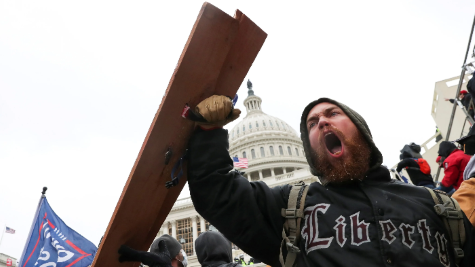

By Shoko Egawa
The world was stunned on Jan. 6 when a mob of supporters of President Donald Trump stormed the United States Capitol. The deadly assault on Congress was a profoundly shocking scene.
The siege broke the spell Trump seemed to have cast over some of his supporters, with a growing number of Republicans distancing themselves from the president. The worry, however, is that diehard Trump loyalists will become even more fervent followers of what could be considered as the “cult of Trump.”
Trump and his devoted followers have long been known for their divisive and dualistic thinking, a strong affinity with conspiracy theories, radical views of the world that are divorced from reality, and support for authoritarianism. Since Trump’s electoral defeat, however, they have started exhibiting clearer characteristics of cult followers, such as victim mentality, a tendency to blame others, and the belief that the ends justify the means.
Cult members place blind and absolute faith in their leader. They believe in the righteousness of their group, and that they are on the side of truth. When faced with a fact that casts doubt on their beliefs, they do not confront it and consider seriously the possibility that they are wrong. Instead, they simply deny it or embrace a conspiracy theory suggesting the involvement of some kind of injustice or a malicious actor.
A cult is a hotbed of conspiracy theories. Cultists always blame others for bad things that happen to them. They make up stories that various enemies and obscure organizations are secretly plotting against them. So when the leader of a cult runs unsuccessfully for an election and refuses to accept defeat, it is hardly surprising that his followers refuse to accept the outcome because they believe it represents a “defeat of justice.”
Trump did not directly call on his followers to storm the Capitol, and the rioters probably belonged to the extremist wing of his support base. But Trump “prophesied” what would happen on that day. “Big protest in D.C. on January 6th,” Trump tweeted on Dec. 19. “Be there, will be wild!” At a rally just before the violence, he repeated his unfounded claim that the election had been “stolen” and urged his followers to “show strength.”
The riot was actually an attempt to disrupt the congressional certification of Joe Biden’s victory, carried out by people willing to use any means to accomplish their leader’s wish. It was an act that had all the hallmarks of typical cult behavior.
Trump’s claims of election fraud are not based on any specific evidence. Unsurprisingly, U.S. courts have unanimously rejected them. But people who are caught up in cult thinking put much greater importance on their own truths, and the words of their leader, than on any specific facts. They refuse to listen to others who point out their factual errors.
Japan can offer some valuable lessons for such people if they are willing to pay attention.
READ ENTIRE ARTICLE AT NIKKEI ASIA


